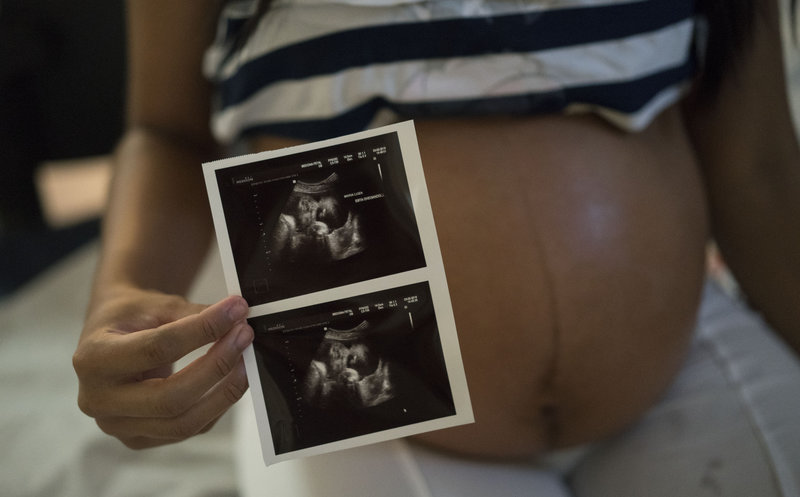Runny eyes, rashes across the arms and legs and swollen, puffy feet. In a new case study, Brazilian doctors are offering a glimpse at the tell-tale symptoms of Zika virus in pregnant women.

New research about Zika virus in pregnant women and their unborn babies is quickly pouring in. In one study, scientists documented the health of healthy expectant moms who came to the hospital with strange symptoms.

There were common trends: a rash and itchy skin was incredibly common, followed by conjunctivitis, which is when eyes are red or pink, sticky and runny.
READ MORE: What pregnant women need to know about Zika virus and travel
The women also reported arthralgia, or joint pain and lymphaldenopathy, which is a swelling in the lymph nodes or glands. They look bean-shaped and could appear in the neck, chest, abdomen or even under your arms as fluid builds up in the lymph nodes while your body fights disease.
- Canadian man dies during Texas Ironman event. His widow wants answers as to why
- ‘Sciatica was gone’: hospital performs robot-assisted spinal surgery in Canadian first
- Canadians more likely to eat food past best-before date. What are the risks?
- Treatment from female doctors leads to lower death rates, study finds
Some women reported a fever, while about one in five also had nausea or vomiting.
Health officials in El Salvador, Brazil, Jamaica, Ecuador, Honduras and Colombia told residents to delay pregnancy until doctors better understand if the infection tampers with brain development in infants. So far, it’s been linked to a 20-fold increase in a rare defect called microcephaly in babies, in which the newborns are born with irregularly small heads and underdeveloped brains.
READ MORE: Zika virus – Don’t have babies until 2018, countries warn
The University of California Los Angeles doctors warn that Zika virus can cause problems in pregnancy during all trimesters.
Before, health officials weren’t sure how the virus could spark issues during various stages of gestation.
“We have found a strong link between Zika and adverse pregnancy outcomes, which haven’t been documented before,” Dr. Karin Nielsen, the study’s senior author, said in a statement.
“We saw problems with the fetus or the pregnancy at eight weeks, 22 weeks, 25 weeks, and we saw problems at 35 weeks. Even if the fetus isn’t affected, the virus appears to damage the placenta, which can lead to fetal death,” Nielsen said.
The researchers tested the blood and urine of 88 pregnant women – 72 tested positive for Zika. By the 36-week mark, doctors found microcephaly, brain development issues, abnormal amniotic fluid and abnormal umbilical and placental flow in the babies’ development.
READ MORE: Trip booked to Zika-affected region? Here’s how Canadian airlines will help you
To date, eight women delivered babies that confirmed the abnormalities in their ultrasounds. Two of the babies died in the third trimester of pregnancy. Of the other six, two were smaller than average, one had severe microcephaly, and another had lesions in the eyes that could lead to blindness. Another baby was delivered via C-section because there was no amniotic fluid in the uterus.
On Monday, the Public Health Agency of Canada reported 20 travel-related cases of Zika virus. No cases have been locally acquired.
carmen.chai@globalnews.ca
Follow @Carmen_Chai



Comments